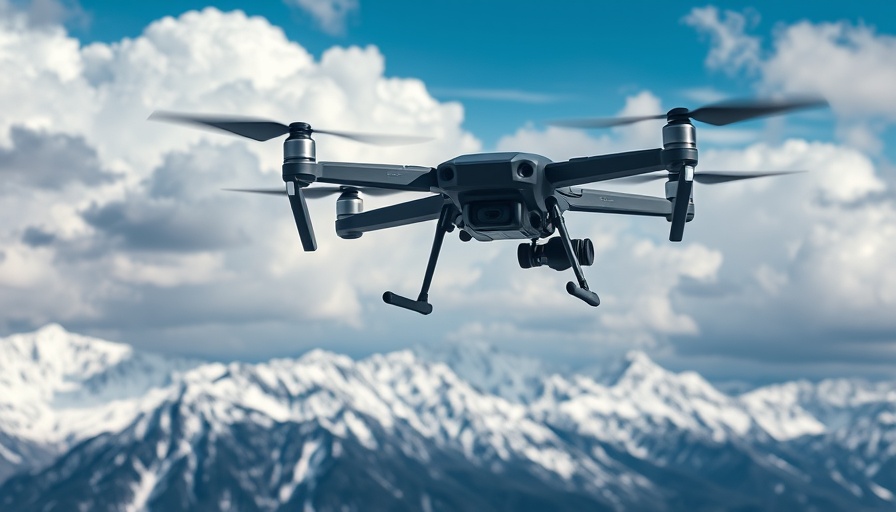
The Growth of Drones in Military Applications
With the evolution of modern warfare, drones have surged in military applications, significantly transforming battlefield dynamics. India, which faced heightened tensions during the recent conflict with Pakistan, witnessed extensive drone usage despite having advanced air force capabilities. This trend has spurred the Indian government, through initiatives like the Drone Federation of India, to commit $470 million towards drone spending over the next 12 to 14 months, highlighting a heightened demand for cutting-edge technology in defense.
Raphe mPhibr's Vision for Indigenous Drone Manufacturing
Founded by brothers Vikash and Vivek Mishra, Raphe mPhibr represents India's ambition to strengthen its indigenous drone manufacturing sector amid global reliance on foreign technology, particularly from China. With a recent fundraising triumph of $100 million in an all-equity Series B round led by General Catalyst, Raphe mPhibr aims to expand its research and development (R&D) as well as local production. The startup has already developed an impressive lineup of nine different drones catering to diverse operational needs, from surveillance to high-altitude logistics.
Understanding Market Needs: The Journey of Raphe mPhibr
Vikash and Vivek's journey began with in-depth research into the operational needs of the Indian defense forces, appreciating the gaps in existing drone capabilities. This understanding has allowed them to produce a product suite that emphasizes versatility, including operational drones for complex terrain and maritime patrols. By prioritizing domestic production, Raphe mPhibr is helping mitigate dependencies and fostering self-sufficiency in India's defense ecosystem.
The Role of Military in Startup Innovation
The increasing demand for military UAVs represents a significant opportunity for startups looking to innovate within defense technology. Raphe mPhibr's growth trajectory illustrates how military needs can stimulate entrepreneurship, positioning tech startups not just as suppliers but as strategic partners in bolstering national security. It's a trend mirrored globally as governments seek out disruptive technologies to maintain competitive advantages.
Funding Insights for Tech Startups in Defense
The successful $100 million fundraising round for Raphe mPhibr demonstrates the potential for tech business startups in sectors that align with governmental interests. For entrepreneurs looking to follow in their footsteps, understanding the funding landscape is crucial. Sources of support could include government grants for business startups focused on technology and innovation, venture capital from private firms looking to invest in high-growth industries, and business startup courses that provide essential insights into securing funding in niche markets.
Future Trends in Drone Technology
Experts predict that the military drone market will continue to grow exponentially. Innovations in AI and automation will likely lead to smarter UAVs capable of performing complex tasks autonomously, thereby increasing operational efficiency and reducing risk. Entrepreneurs eyeing the drone industry should focus on research-backed innovations and customer-driven solutions to align with future trends, the way Raphe mPhibr has.
Conclusion: Shaping India's Drone Future
As India strives to solidify its status in drone technology through companies like Raphe mPhibr, the convergence of military demand and startup innovation will play a pivotal role in the nation's tech landscape. Emerging entrepreneurs have much to learn from this trajectory, fostering ideas that could lead to equally successful business startups. With government support and an active initiative in self-reliance, the future looks promising for technology-focused startups venturing into the defense sector.
 Add Row
Add Row  Add
Add 



Write A Comment